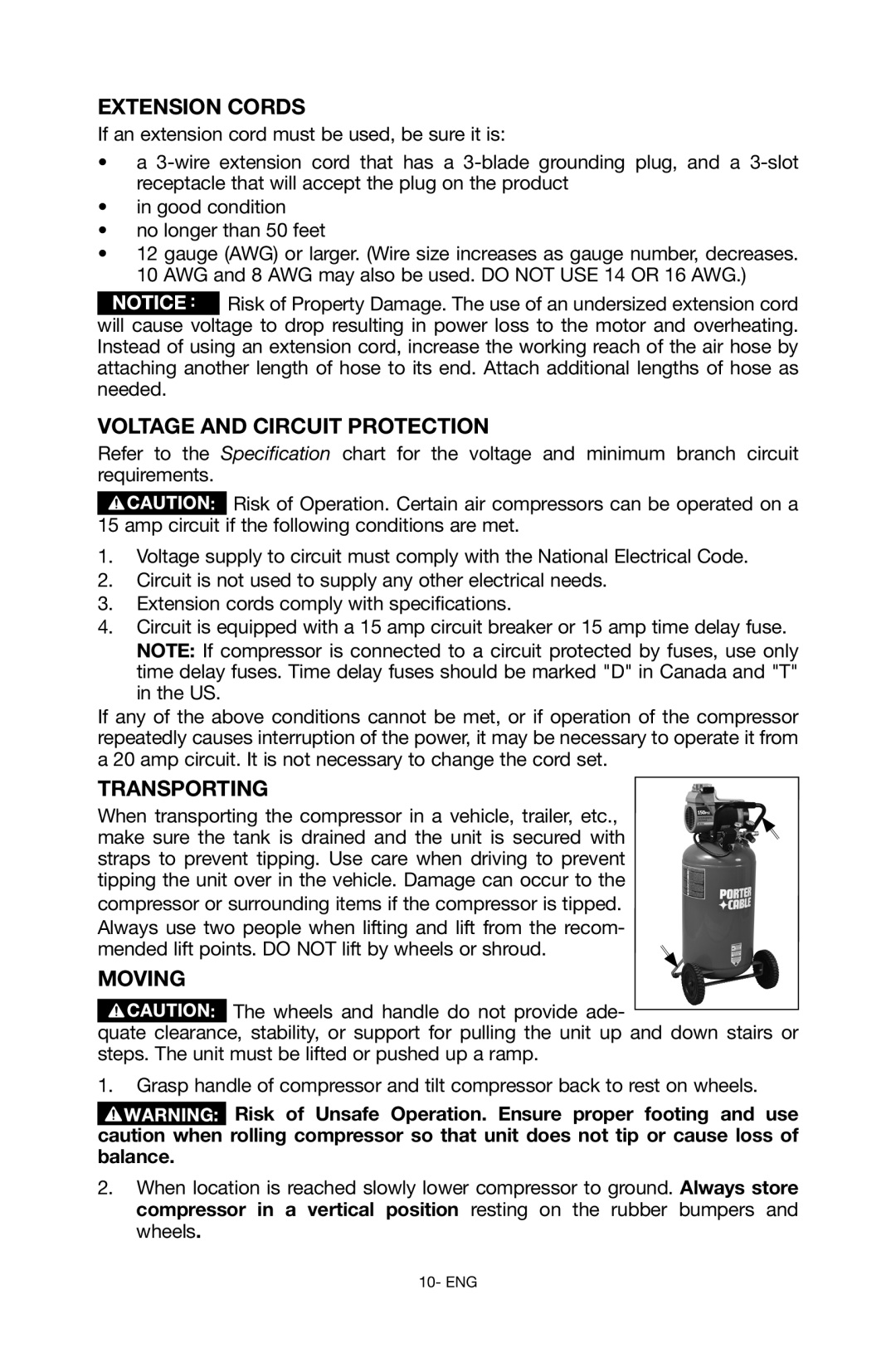
Extension Cords
If an extension cord must be used, be sure it is:
•a
•in good condition
•no longer than 50 feet
•12 gauge (AWG) or larger. (Wire size increases as gauge number, decreases. 10 AWG and 8 AWG may also be used. DO NOT USE 14 OR 16 AWG.)
![]() Risk of Property Damage. The use of an undersized extension cord will cause voltage to drop resulting in power loss to the motor and overheating. Instead of using an extension cord, increase the working reach of the air hose by attaching another length of hose to its end. Attach additional lengths of hose as needed.
Risk of Property Damage. The use of an undersized extension cord will cause voltage to drop resulting in power loss to the motor and overheating. Instead of using an extension cord, increase the working reach of the air hose by attaching another length of hose to its end. Attach additional lengths of hose as needed.
Voltage and Circuit Protection
Refer to the Specification chart for the voltage and minimum branch circuit requirements.
![]() Risk of Operation. Certain air compressors can be operated on a 15 amp circuit if the following conditions are met.
Risk of Operation. Certain air compressors can be operated on a 15 amp circuit if the following conditions are met.
1.Voltage supply to circuit must comply with the National Electrical Code.
2.Circuit is not used to supply any other electrical needs.
3.Extension cords comply with specifications.
4.Circuit is equipped with a 15 amp circuit breaker or 15 amp time delay fuse.
NOTE: If compressor is connected to a circuit protected by fuses, use only time delay fuses. Time delay fuses should be marked "D" in Canada and "T" in the US.
If any of the above conditions cannot be met, or if operation of the compressor repeatedly causes interruption of the power, it may be necessary to operate it from a 20 amp circuit. It is not necessary to change the cord set.
Transporting
When transporting the compressor in a vehicle, trailer, etc., make sure the tank is drained and the unit is secured with straps to prevent tipping. Use care when driving to prevent tipping the unit over in the vehicle. Damage can occur to the
compressor or surrounding items if the compressor is tipped.
Always use two people when lifting and lift from the recom- mended lift points. DO NOT lift by wheels or shroud.
Moving
![]() The wheels and handle do not provide ade-
The wheels and handle do not provide ade-
quate clearance, stability, or support for pulling the unit up and down stairs or steps. The unit must be lifted or pushed up a ramp.
1.Grasp handle of compressor and tilt compressor back to rest on wheels.
![]()
![]()
![]()
![]()
![]()
![]()
![]()
![]() Risk of Unsafe Operation. Ensure proper footing and use caution when rolling compressor so that unit does not tip or cause loss of balance.
Risk of Unsafe Operation. Ensure proper footing and use caution when rolling compressor so that unit does not tip or cause loss of balance.
2.When location is reached slowly lower compressor to ground. Always store compressor in a vertical position resting on the rubber bumpers and wheels.
10- ENG
